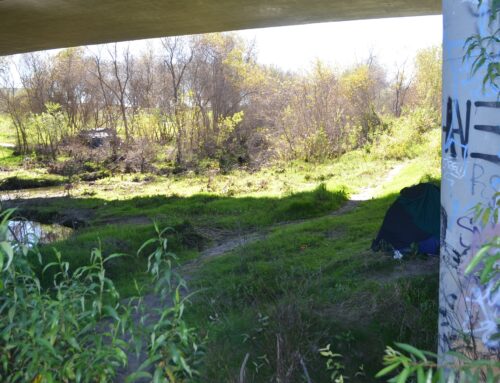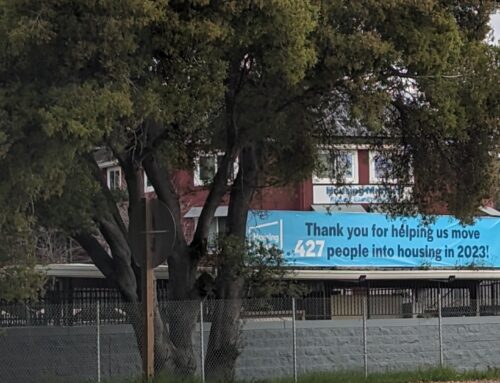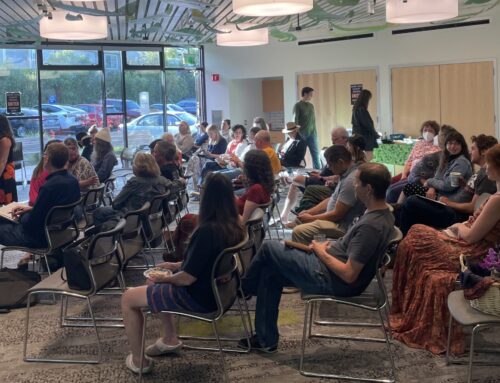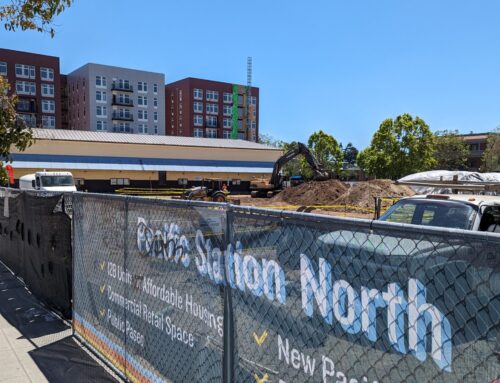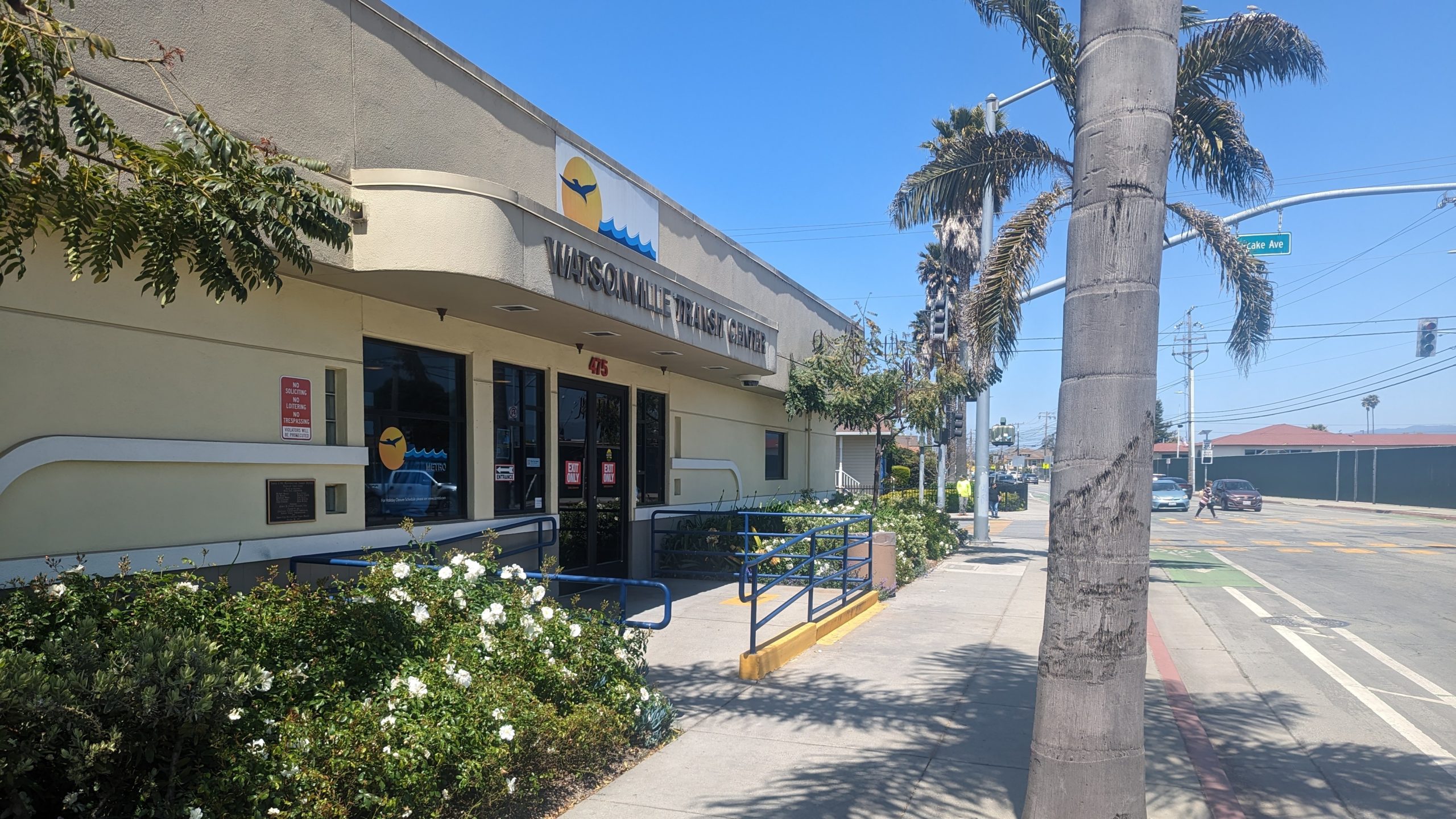
The Santa Cruz Metropolitan Transit District plans to build 60 affordable housing units above a new bus station at 475 Rodriguez St. in Downtown Watsonville. (Tyler Maldonado — Santa Cruz Local)
WATSONVILLE >> Plans are underway to redevelop a bus transit center in Downtown Watsonville to include 60 units of affordable housing above the station.
The estimated $50 million project would replace the Santa Cruz Metropolitan Transit District center at Rodriguez Street and West Lake Avenue. Construction could start in late 2025 or early 2026. The bus station would close during construction, but bus operations would continue without interruption at a temporary station nearby, said Santa Cruz Metro CEO Michael Tree.
“We felt that a redevelopment project in Downtown Watsonville at the Transit Center would not only improve the ambience and usability of the Metro bus system, but it would also create an opportunity to provide affordable housing,” said Tree.
Santa Cruz Metro would continue to own the property. The developer and housing manager would be MidPen Housing, Tree said.
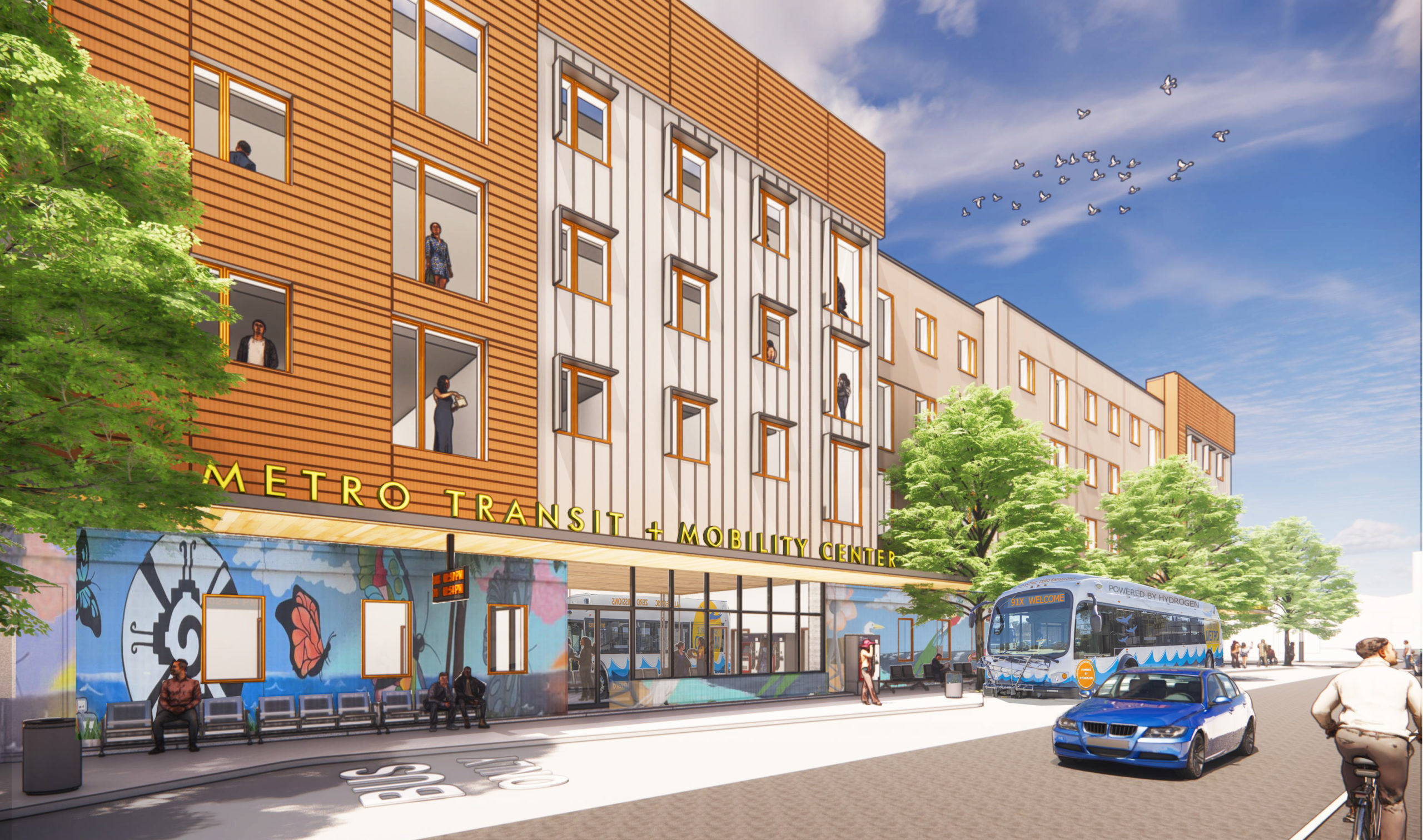
A rendering of a four-story planned housing complex at the Santa Cruz Metro transit center in Downtown Watsonville (MidPen Housing)
Preliminary plans for the project include:
- Three floors of housing above ground-floor shops and community space.
- A waiting lounge for the bus station and a bike share hub.
- Zero-net-energy building design.
- A “mobility center” with exhibits on how to use the bus system and zero-emission bus technology
Parking spaces are not required for the project under state law, but resident parking may be available in a nearby garage, Tree said.
Santa Cruz Metro has shared its preliminary ideas for the transit center redevelopment with the Watsonville Community Development Department. However, no formal plans or permit applications have been submitted for the project, said Justin Meek, City of Watsonville principal planner.
The project would need approval from the Watsonville City Council, said Tree.
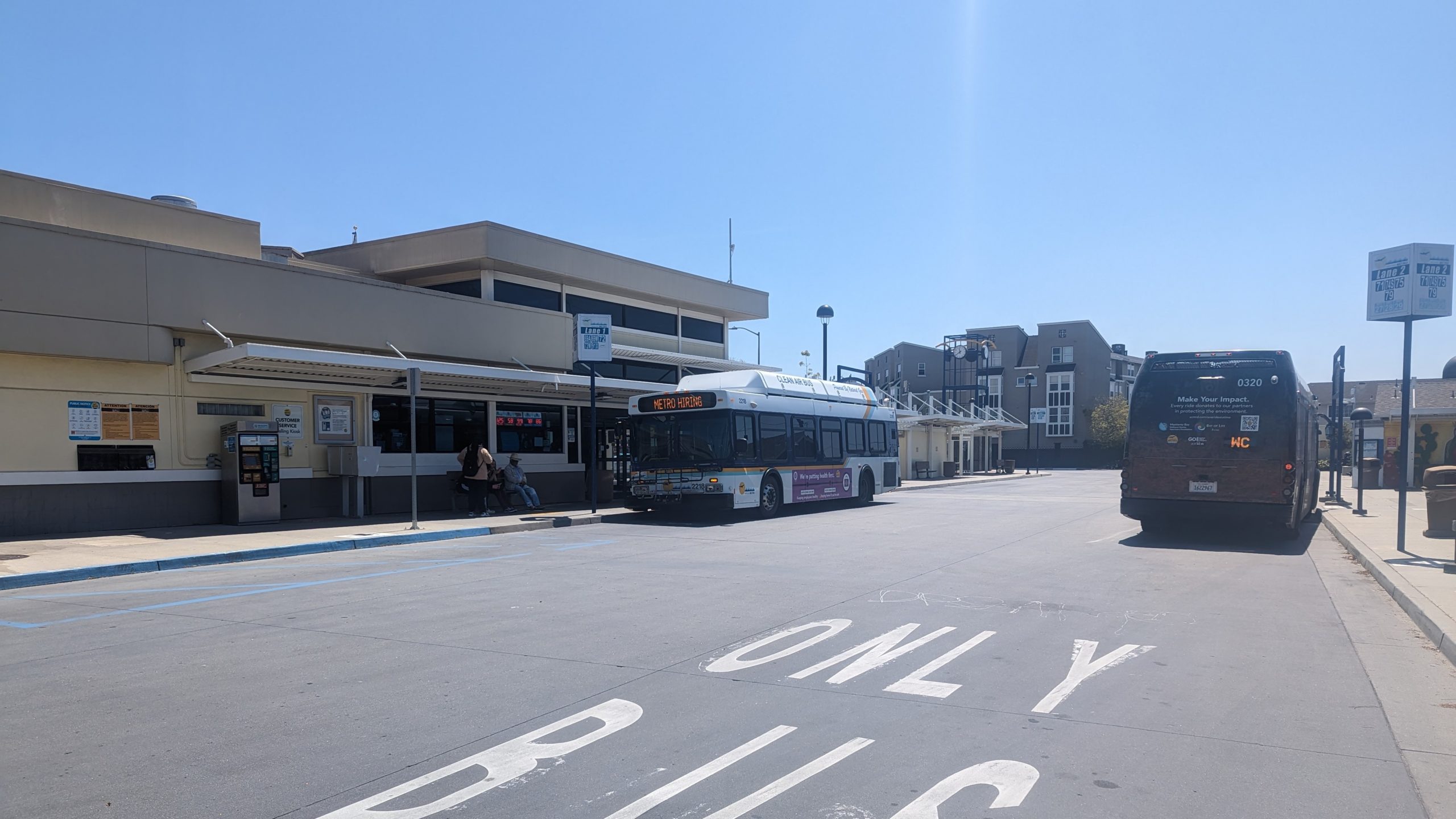
A new bus station and housing complex could begin construction in late 2025 at Rodriguez Street and West Lake Avenue in Watsonville. Bus service would continue uninterrupted at a temporary station nearby, said Santa Cruz Metro CEO Michael Tree. (Tyler Maldonado — Santa Cruz Local)
A previous version of the project around 2015 called for a new bus facility and no housing. That plan stalled.
Santa Cruz Metro and MidPen Housing previously partnered to develop the Via Del Mar affordable housing complex at 124 W. Beach St., adjacent to the transit center. For the new transit center, Tree said they partnered with MidPen Housing to take advantage of “opportunities of collaboration and synergy between the two projects,” including the possibility of sharing common spaces and architectural design features.
MidPen Housing manages 358 affordable housing units in seven complexes in Watsonville, with plans to build another 80 on Atkinson Lane.
MidPen Director of Development and Operations Joanna Carman said her group plans to hold community meetings to inform the project’s affordability levels, design and details.
“It is from these community conversations that we make determinations about affordability levels, project design, and other details,” Carman said.
“However, I can say that all of MidPen’s existing properties in the Watsonville area are affordable to families and households earning between 30% to 60% of area median income,” she added.
In 2022, the area median income for Santa Cruz County was $119,300. To qualify for “low income” housing, the annual income limit for a family of four is about $125,000. The income limits are published annually by the state Department of Housing and Community Development.
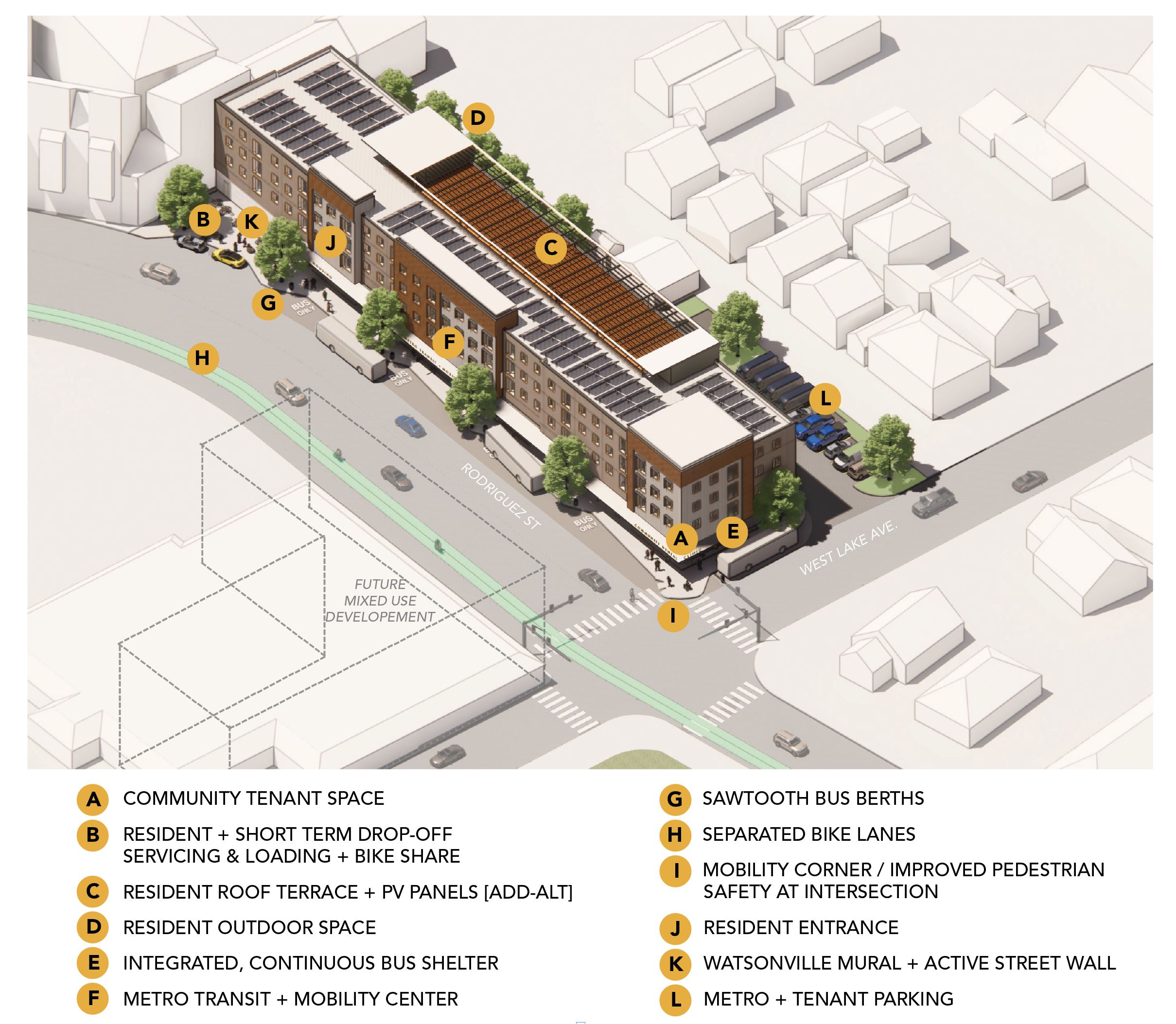
A schematic for the planned Watsonville Transit Center shows community space for residents, a roof terrace and limited parking for residents and employees. (Santa Cruz Metro)
About $8.5 million of the overall $50 million cost for the project would be covered by a California State Transportation Agency Transit and Intercity Rail Capital Program grant. Future funding is expected from the state’s Affordable Housing and Sustainability Communities program, Tree said. The program is designed to reduce car trips in California.
“The fact they can literally walk downstairs and be right in a bus — that will increase ridership,” said Tree, who expected a net increase of nearly 16,000 annual bus rides from the 60 or so apartments. Tree said he was optimistic about more funding from the state.
“The more these types of developments happen, the quicker the state can meet its goals,” he said, referring to greenhouse gas emissions reduction targets.
The grant METRO received from the state also included money for improvements to the transit system, including the introduction of real-time bus tracking information along the 71 route from Downtown Santa Cruz to Downtown Watsonville.The bus-tracking system is 90% funded, and Tree expected the improvements to roll out over the next 18 to 24 months.
Jack Chacanara, 29, a resident of North Monterey County and self-employed information technology worker, frequently uses the Santa Cruz Metro bus system for his commute. He recently participated in a Santa Cruz Metro focus group on reimagining the bus schedules and routes.
“You have to wait sometimes a half an hour between buses,” he said, describing the feedback he gave to Santa Cruz Metro. “I would like to see it redesigned in general, even including housing. If you redesign it with a housing component, that would encourage more riders.”
He said he thought increased ridership might improve the quality of services.
“It’s sort of a Catch-22: They say in order to improve services they need to increase ridership, but also, realistically, in order to get riders, you have to first improve services,” Chacanara said. He said he hoped the housing planned for the Watsonville transit center would increase ridership and ultimately improve bus services.
Questions or comments? Email [email protected]. Santa Cruz Local is supported by members, major donors, sponsors and grants for the general support of our newsroom. Our news judgments are made independently and not on the basis of donor support. Learn more about Santa Cruz Local and how we are funded.
Tyler Maldonado holds a degree in English from the University of California, Berkeley. He writes about housing, homelessness and the environment. He lives in Santa Cruz County.


